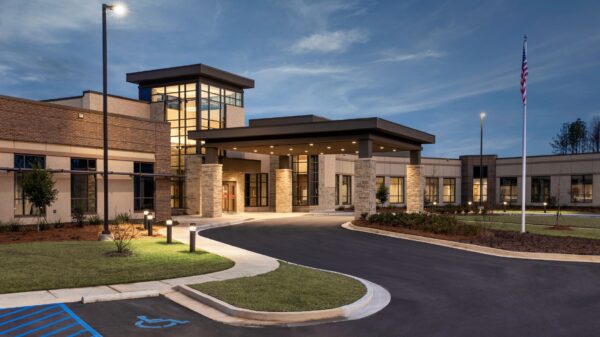Alabama’s official death toll from COVID-19 increased by 250 on Tuesday, with all but four of those deaths occurring in recent weeks. The state’s growing tally of COVID dead is the somber outcome of the state’s latest surge, which saw record low ICU bed availability statewide.
Of the 742 new deaths confirmed and added to the cumulative death count in the last week, 98.38 percent occurred in August and September, with 41 percent happening this month, according to APR’s review of Alabama Department of Public Health data.
“In Alabama, we’ve seen a 177 percent increase in deaths over the past 14 days, and that’s very sobering when you think of how many people we could be preventing illness and preventing death with vaccination,” said Dr. Rachael Lee, assistant professor in the UAB Division of Infectious Diseases, in a Monday briefing.
There have been 13,460 confirmed COVID deaths in Alabama. The state has the fourth-lowest percentage of residents fully vaccinated against COVID in the nation, at 41.4 percent, behind West Virginia, Idaho and Wyoming, which are all just above 40 percent, according to the Centers for Disease Control and Prevention.
COVID hospitalizations have been declining, and on Monday dipped below 2,000 for the first time during this latest surge since Aug. 8, at 1,947 on Tuesday, but recent deaths are playing a role in that decline.
All but four of those 250 newly confirmed deaths Tuesday occurred in August and September, with most dying in the 19 days between Aug. 24 and Sept. 12. During those 19 days, 766 Alabamians died of COVID, with the state’s COVID hospitalizations dropping by 303 during that time period.
Alabama’s ICU beds were at 98 percent capacity on Monday, with 44 percent of those beds filled with COVID patients. The state for several weeks had a net negative number of ICU beds, with more than 180 fewer ICU beds than patients needing that care on one day earlier this month. There are more available ICU beds now, but the situation in ICU’s statewide remains critical.
“ICU’s are very, very full right now,” Lee said Monday.
Lee said she was working in the hospital recently and was taken by the number of younger people fighting for their lives.
“It’s incredibly hard to see people younger than myself, with no co-morbidities, intubated and on the ventilator.”
Lee said the data is important but that “it’s more than just numbers” and encouraged everyone eligible to get vaccinated.
“It’s a person that you love, that you care about, who is really struggling in the hospital, and so that’s why we as a community need to work together to protect our loved ones,” Lee said.
New cases reported to the Alabama Department of Public Health have been falling slightly in recent weeks, down from an average of 3,985 a day over the week ending Sep. 7 to an average of 3,067 daily over the last week, but the decline isn’t happening as quickly as it did during the state’s winter surge.
Alabama’s weekly case count fell by 38 percent from a winter surge high of 30,585 cases during the week ending Jan. 9 to the weekly count two weeks later, but weekly case totals have fallen by just 28 percent from this surge’s high of 33,156 added the week ending Sept 2.
The percent of COVID tests that are positive in Alabama has been declining as well, down to an average of 15.7 percent over the last week, compared to 23.1 the week of Aug. 8, but it still remains three times higher than it should be. Public health experts say it should be at or below 5 percent or cases are going undetected.





















































